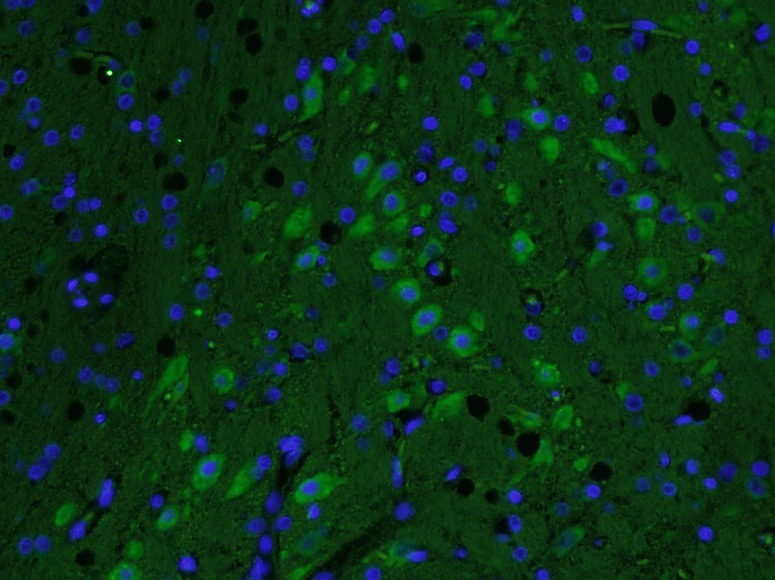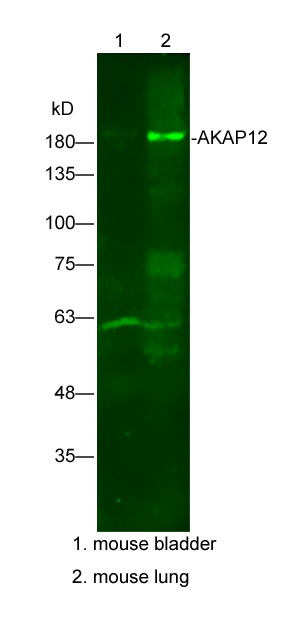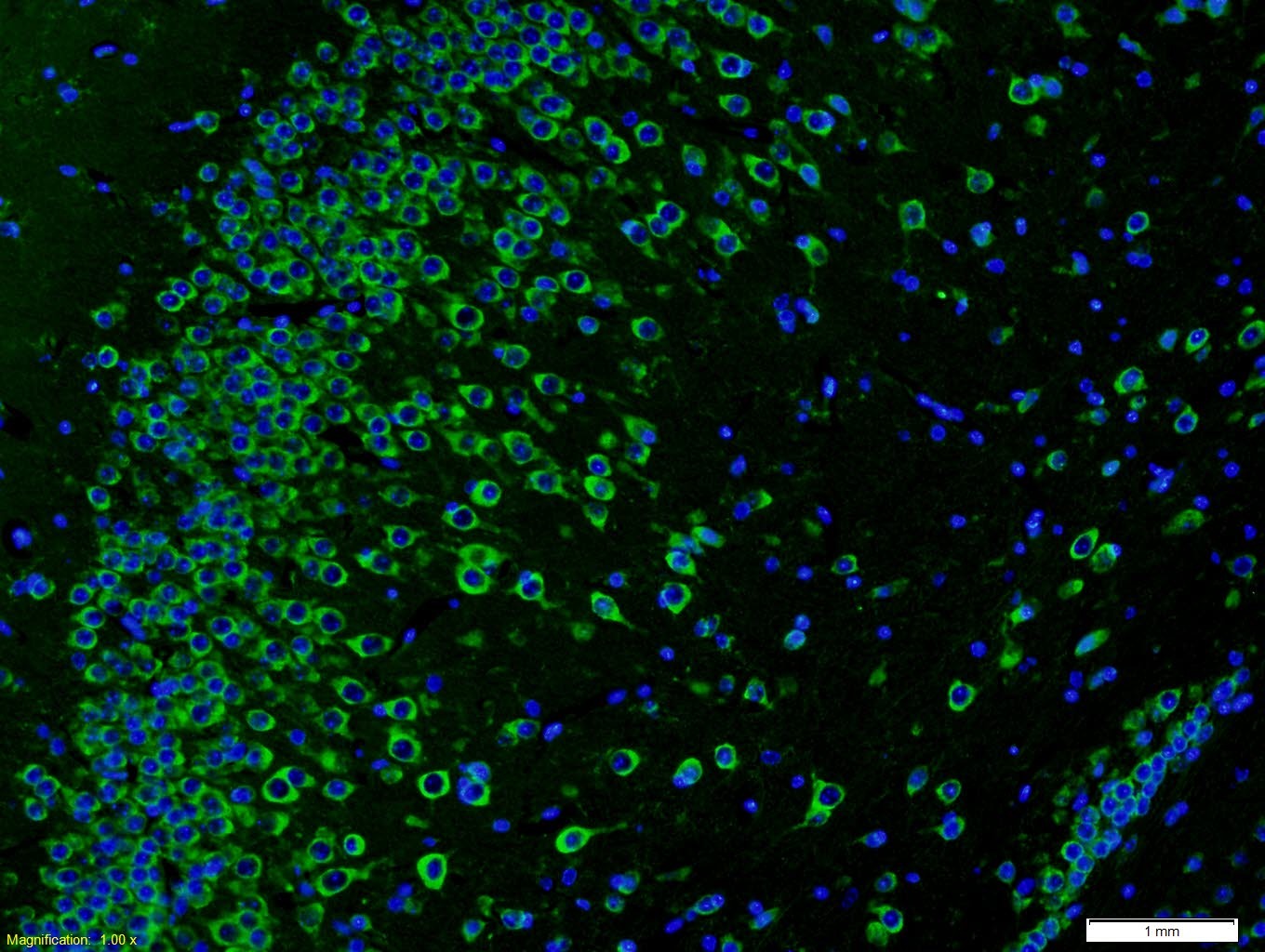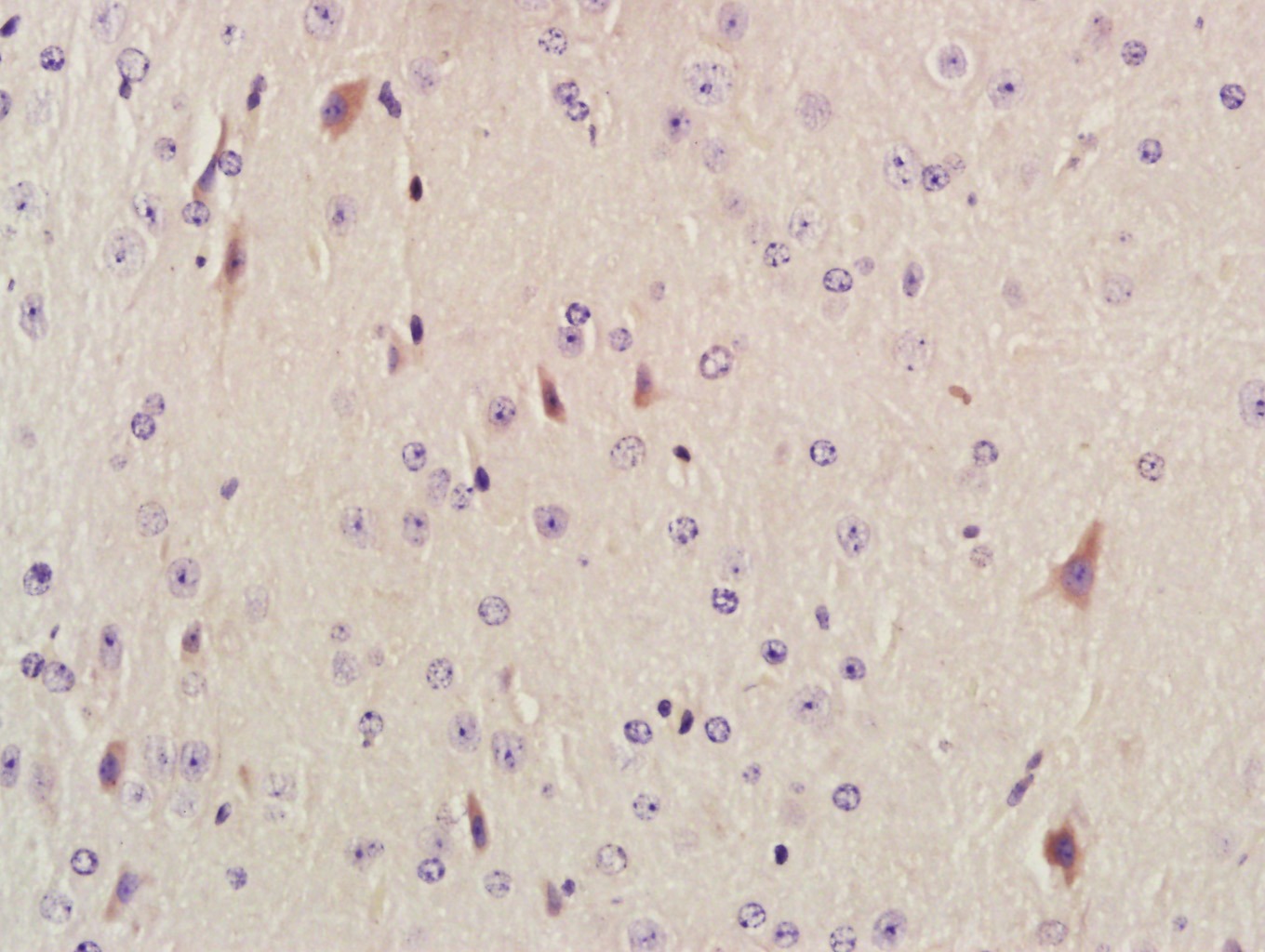Shopping Cart
Remove All Your shopping cart is currently empty
Your shopping cart is currently empty
Anti-AKAP12 Polyclonal Antibody is a Rabbit antibody targeting AKAP12. Anti-AKAP12 Polyclonal Antibody can be used in IF,IHC-Fr,IHC-P,WB.
| Pack Size | Price | USA Warehouse | Global Warehouse | Quantity |
|---|---|---|---|---|
| 50 μL | $222 | 7-10 days | 7-10 days | |
| 100 μL | $373 | 7-10 days | 7-10 days | |
| 200 μL | $527 | 7-10 days | 7-10 days |
| Description | Anti-AKAP12 Polyclonal Antibody is a Rabbit antibody targeting AKAP12. Anti-AKAP12 Polyclonal Antibody can be used in IF,IHC-Fr,IHC-P,WB. |
| Synonyms | Tsga12, SSeCKS, Srcs5, Myasthenia gravis autoantigen gravin, Kinase scaffold protein gravin, Gravin, Gercelin, DKFZp686O0331, DKFZp686M0430, AKAP250, AKAP 250, AKAP 12, A kinase(PRKA) anchor protein(gravin) 12, A kinase anchor protein 250kDa, A kinase Anchor Protein 12 |
| Ig Type | IgG |
| Reactivity | Human,Mouse,Rat (predicted:Dog) |
| Verified Activity | 1. Paraformaldehyde-fixed, paraffin embedded (Rat brain); Antigen retrieval by boiling in sodium citrate buffer (pH6.0) for 15 min; Block endogenous peroxidase by 3% hydrogen peroxide for 20 min; Blocking buffer (normal goat serum) at 37°C for 30 min; Antibody incubation with (AKAP12) Polyclonal Antibody, Unconjugated (TMAB-00084) at 1:400 overnight at 4°C, followed by a conjugated Goat Anti-Rabbit IgG antibody for 90 minutes, and DAPI for nucleus staining. 2. Sample: Lane1: mouse bladder Lysate at 25 μg Lane2: mouse lung Lysate at 25 μg Primary: Anti-AKAP12 (TMAB-00084) at 1/300 dilution Secondary: IRDye800CW Goat Anti-Rabbit IgG at 1/20000 dilution Predicted band size: 191 kDa Observed band size: 191 kDa 3. Paraformaldehyde-fixed, paraffin embedded (Mouse brain); Antigen retrieval by boiling in sodium citrate buffer (pH6.0) for 15 min; Block endogenous peroxidase by 3% hydrogen peroxide for 20 min; Blocking buffer (normal goat serum) at 37°C for 30 min; Antibody incubation with (AKAP12) Polyclonal Antibody, Unconjugated (TMAB-00084) at 1:400 overnight at 4°C, followed by a conjugated secondary antibody for 90 minutes, and DAPI for nucleus staining. 4. Paraformaldehyde-fixed, paraffin embedded (Mouse brain); Antigen retrieval by boiling in sodium citrate buffer (pH6.0) for 15 min; Block endogenous peroxidase by 3% hydrogen peroxide for 20 min; Blocking buffer (normal goat serum) at 37°C for 30 min; Antibody incubation with (AKAP12) Polyclonal Antibody, Unconjugated (TMAB-00084) at 1:400 overnight at 4°C, followed by a conjugated secondary antibody for 20 min and DAB staining.     |
| Application | |
| Recommended Dose | WB: 1:500-2000; IHC-P: 1:100-500; IHC-Fr: 1:100-500; IF: 1:200-800 |
| Antibody Type | Polyclonal |
| Host Species | Rabbit |
| Subcellular Localization | Cytoplasm |
| Tissue Specificity | Expressed in endothelial cells, cultured fibroblasts and osteosarcoma, but not in platelets, leukocytes, monocytic cell lines or peripherical blood cells. |
| Construction | Polyclonal Antibody |
| Purification | Protein A purified |
| Appearance | Liquid |
| Formulation | 0.01M TBS (pH7.4) with 1% BSA, 0.02% Proclin300 and 50% Glycerol. |
| Concentration | 1 mg/mL |
| Research Background | The A-kinase anchor proteins (AKAPs) are a group of structurally diverse proteins, which have the common function of binding to the regulatory subunit of protein kinase A (PKA) and confining the holoenzyme to discrete locations within the cell. This gene encodes a member of the AKAP family. The encoded protein is expressed in endothelial cells, cultured fibroblasts, and osteosarcoma cells. It associates with protein kinases A and C and phosphatase, and serves as a scaffold protein in signal transduction. This protein and RII PKA colocalize at the cell periphery. This protein is a cell growth-related protein. Antibodies to this protein can be produced by patients with myasthenia gravis. Alternative splicing of this gene results in two transcript variants encoding different isoforms. [provided by RefSeq, Jul 2008] |
| Immunogen | KLH conjugated synthetic peptide: human AKAP12 |
| Antigen Species | Human |
| Gene Name | AKAP12 |
| Gene ID | |
| Protein Name | A-kinase anchor protein 12 |
| Uniprot ID | |
| Biology Area | Neurodegenerative disease,Cytoplasmic |
| Function | Anchoring protein that mediates the subcellular compartmentation of protein kinase A (PKA) and protein kinase C (PKC). |
| Molecular Weight | Theoretical: 191 kDa. |
| Stability & Storage | Store at -20°C or -80°C for 12 months. Avoid repeated freeze-thaw cycles. |
| Transport | Shipping with blue ice. |
| Size | Quantity | Unit Price | Amount | Operation |
|---|

Copyright © 2015-2026 TargetMol Chemicals Inc. All Rights Reserved.